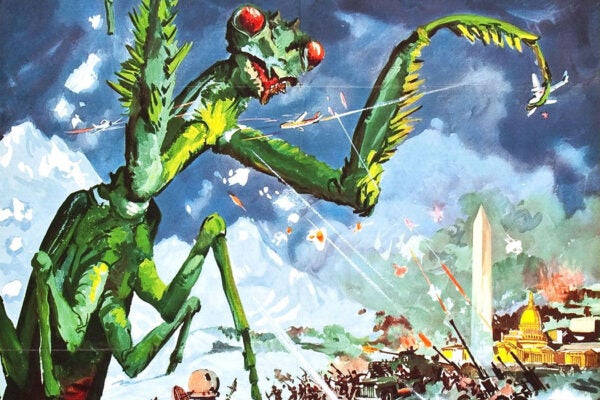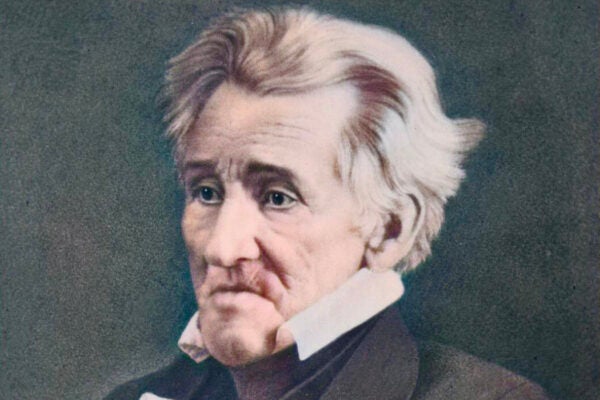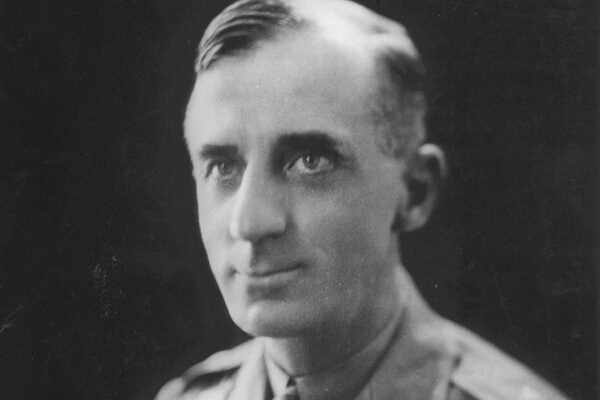Reasons for Re-Enacting at the Renaissance Faire
Why do we love donning period costumes and re-enacting our history through mock battles, pioneer villages, and Renaissance Faires?
The Treaty of Paris 1783: Annotated
The Treaty of Paris marked the end of the Revolutionary War and the hostilities between Great Britain and the newly independent United States—at least temporarily.
The War on Bugs
In the 1950s, supersized insects were the villains in a rash of big-screen horror movies. What did those monstrous roaches represent, and how were they vanquished?
Andrew Jackson’s Speech on the Indian Removal Act: Annotated
In December 1830, two months after the passage of the Indian Removal Act, President Andrew Jackson used his annual Congressional message to celebrate the policy.
Genesis of the Modern American Right
During the Great Depression, financial elites translated European fascism into an American form that joined high capital with lower middle-class populism.
Richard Gregg: An American Pioneer of Nonviolence Remembered
Gregg was one of the first translators of Gandhi’s methods of nonviolent resistance for the West.
The Long Civil Rights Movement
The “master narrative” of civil rights in the United States obscures the history of a more radical civil rights movement that stretches to the 1930s.
The Numbers vs. the Lottery
Between the 1960s and 1980s, state governments created lotteries to supplant illegal gambling operations that brought revenue to marginalized communities.
Webster’s Dictionary 1828: Annotated
Noah Webster’s American Dictionary of the English Language declared Americans free from the tyranny of British institutions and their vocabularies.
Missouri Compromise of 1820: Annotated
The “compromise” attempted to answer the question of whether the Missouri territory would be admitted to the Union as a “slave” or “free” state.









